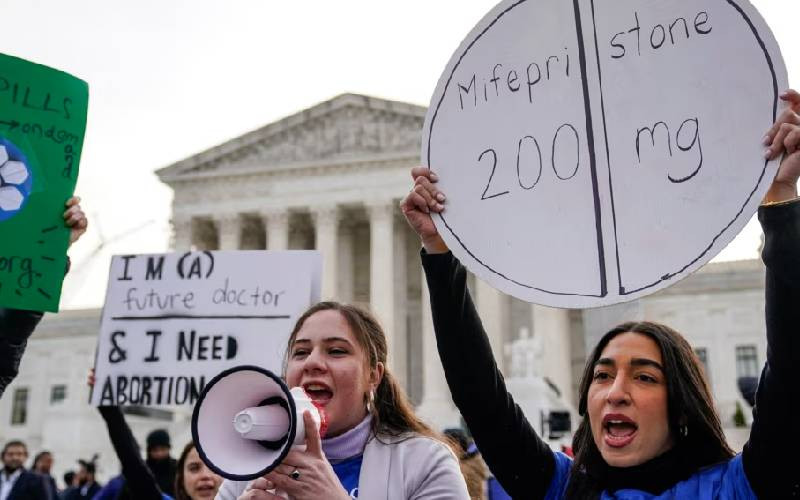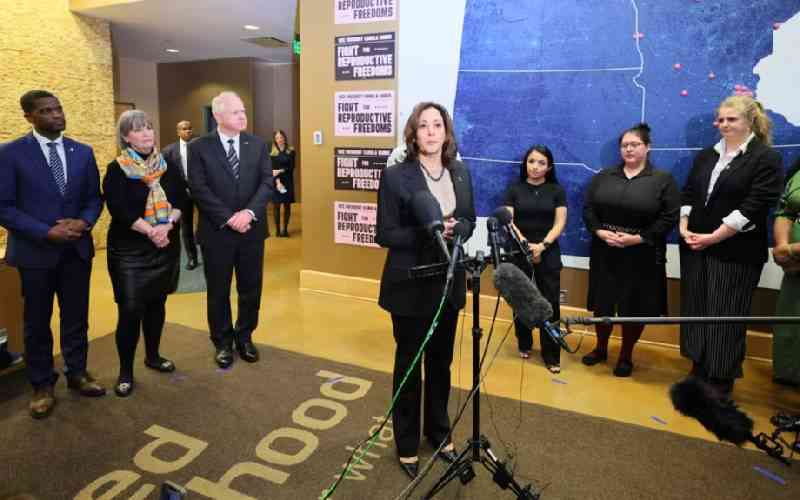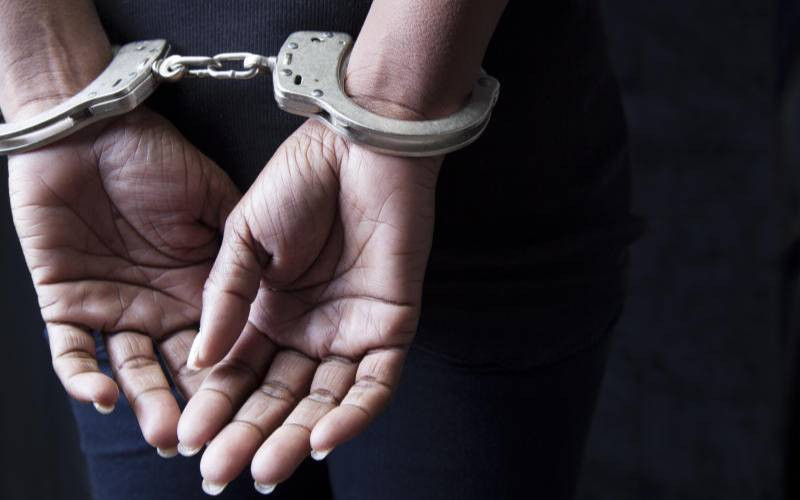Today marks a major win for pro-abortion groups with the Government launching a policy which opens a wider space through which legal abortion can be procured.
This comes about two weeks after The Standard's exposé on the shocking number of backstreet abortions in the country at 375,000 annually, with 3,000 of the women losing their lives.
The Cabinet Secretary for Health James Macharia will today launch the National Adolescent Sexual and Reproductive Health Policy 2015 (ASRHP) in Nairobi.
This is part of a wider five-year investment plan by the ministry, which will include the introduction of sex education and products for children aged 10-19. It will also finance the comprehensive health of mothers and newborns, all at a cost of about Sh223 billion.
More than half of the money to be contributed by counties will go towards purchasing commodities such as condoms, birth control drugs and safe abortion and post-abortion services.
The Kenya Reproductive, Maternal, Newborn, Child and Adolescent Health Investment Framework is the first policy document indicating a specific budget line for sex education, safe abortion and mother and child health.
The investment framework also indicates girls from poor families will be given free cash transfers to keep them longer in schools and away from risky sex behaviour.
"The national and country governments will introduce and scale up cash transfers to retain girls in schools and avoid risky sex behaviours," indicates the investment framework.
The ASRHP to be launched today will be the first official policy document expounding on abortion and matters around sex as provided for in the Constitution.
The Constitution allows for abortion only if the life of the mother is in danger, which must be determined by a qualified medical professional.
Soon after the operationalisation of the Constitution in 2010, the Ministry of Health developed and distributed abortion guidelines as per the new law but they were soon withdrawn following pressure from church leaders.
The clergy had argued that the guidelines gave too much leeway for abortion to be procured on demand.
Threat to life
The contentious issue has been what actually constitutes a threat to a pregnant woman's life, with church leaders defining this as the presence of a disease or infirmity. Pro-abortionists have wanted the definition broadened.
The new policy says: "Health is a state of complete physical, mental and social well-being, and not merely the absence of disease or infirmity."
Stay informed. Subscribe to our newsletter
The church does not appear on the list of organisations which developed the new policy funded by the US and UK governments and coordinated by the United Nations.
The policy describes an adolescent as a child aged between 10 and 18 and guarantees their rights on all matters sexual.
"For sexual health to be attained and maintained, the sexual rights of all persons must be respected, protected and fulfilled."
To operationalise the wider plan for the health of all children, adolescents and women the two levels of government, and donors will spend an average of Sh40 billion annually for five years.
Within the project plan, 20 counties will be prioritised, most of them from the hardship areas.
The policy paper says the Ministry of Health will work with its Education counterpart to revise the school curriculum to allow comprehensive sexuality and reproductive health education.
The ministries will identify teacher champions for school health who can sustain the programme with minimum external support.
The 20 priority counties include Turkana, West Pokot, Mandera, Narok, Wajir, Samburu, Migori, Trans Nzoia, Garissa, Marsabit, Nairobi, Bungoma, Nakuru, Kilifi, Homa Bay, Isiolo, Kitui, Kakamega, Tana River and Lamu.
 The Standard Group Plc is a
multi-media organization with investments in media platforms spanning newspaper
print operations, television, radio broadcasting, digital and online services. The
Standard Group is recognized as a leading multi-media house in Kenya with a key
influence in matters of national and international interest.
The Standard Group Plc is a
multi-media organization with investments in media platforms spanning newspaper
print operations, television, radio broadcasting, digital and online services. The
Standard Group is recognized as a leading multi-media house in Kenya with a key
influence in matters of national and international interest.
 The Standard Group Plc is a
multi-media organization with investments in media platforms spanning newspaper
print operations, television, radio broadcasting, digital and online services. The
Standard Group is recognized as a leading multi-media house in Kenya with a key
influence in matters of national and international interest.
The Standard Group Plc is a
multi-media organization with investments in media platforms spanning newspaper
print operations, television, radio broadcasting, digital and online services. The
Standard Group is recognized as a leading multi-media house in Kenya with a key
influence in matters of national and international interest.








